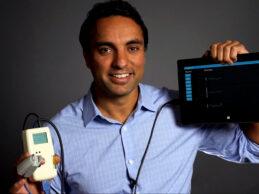Leveraging technological advances to facilitate new ways of engaging patients and integrating non-invasive technology into a liver disease program not only serves to improve individual outcomes and reduce costs but also strengthens the financial performance of health systems and provider organizations that include this approach to testing.
At a time when America’s hospitals and physician groups face lost revenues due to the COVID-19 pandemic, there is a pressing need for reducing costs while
Read More
Health IT & Digital Health-Opinion | Op-Eds | Guest Columns | Analysis, Insights - HIT Consultant
Payers Struggle with Provider Data Management Too
Provider data management is usually discussed from the provider perspective: the busy staff, the needless paperwork amid a pandemic, the faxing, emailing and uploading of data. In these scenarios, the health plans are often painted as the villains for their bureaucratic processes and unique requirements. But the reality is that health plans aren’t totally to blame.
Payers and providers share a common goal: to provide the best quality care for their patients. The amount of data, including
Read More
Improving Inventory Management During COVID-19 and Beyond
Healthcare systems across the country are facing high patient volumes combined with higher patient expectations during the COVID-19 pandemic. In response, hospitals and other healthcare facilities need to consider technology that can help them keep pace with evolving demands while prioritizing the health, safety, and experience of their patients.
One of the most impactful solutions in a healthcare facility’s technology arsenal are the ones focused on inventory management. These
Read More
Data-Driven Future: Impact of Machine Learning on Diabetes Management
“Information technology and business are becoming inextricably interwoven. I don't think anybody can talk meaningfully about one without the talking about the other” – Bill Gates wrote this in 1999 and, nowadays, the same can certainly be said about information technology and healthcare.
The ability to collect, analyze, and use data is becoming ubiquitous with many of healthcare’s most exciting advancements. Whether it’s Google’s DeepMind using artificial intelligence (AI) to help
Read More
How to Optimize Your Healthcare Practice with Advanced Technology Solutions
As COVID-19 continues to influence patient behaviors and causes providers to reevaluate how they operate their businesses, healthcare practices all around the world started looking for solutions that emphasize clinical efficiencies, elevate patient revenue cycle management, as well as feature enhanced reporting, and analytics tools. More so, along with facing challenges of the patient intake process during a pandemic, providers have also been put to the test with learning how to meet the sudden
Read More
Untapping the Potential for Virtual Care in a Pandemic and Beyond
Virtual care is everywhere and ubiquitous. But at a time when the world is amid a global pandemic, virtual care is also being underutilized. The technology exists today to help our healthcare system not only more effectively and efficiently manage care during COVID-19, but also exponentially scale capacity in the face of future outbreaks.
Virtual care defined
Virtual care is a broad term. It encompasses all the ways healthcare practitioners provide for care remotely. This can mean
Read More
Why Patients, Not EHRs, Deserve our Undivided Attention
We cannot earn patients’ trust and respect if we are tethered to a computer in the exam room, navigating the EHR concurrent to a visit or otherwise in a hurry to finish so we can return to our office where data entry to the EHR awaits us.
______________________________________________________
I am a physician married to a physician, and for years, our evenings consisted of putting the kids to bed, then sitting next to each other, laptops open, finishing our charting. If you are a
Read More
VR and AR Simulation Medical Training Can Reduce Medical Errors
Human error is an inevitable event in the practice of any trade, including healthcare and medicine. The errors made in medicine can have many negative effects for patients and healthcare providers. A study out of Johns Hopkins in 2016 found that medical errors accounted for over 250,000 deaths annually in the United States – making it the third leading cause of death in the country (Makary 2016). Research has shown that most medical errors occur during the administration and prescribing stages
Read More
3 Ways to Boost Patient Confidence with Real-Time Contactless Communication
Although the vaccine’s rollout is slowly underway, Covid cases worldwide are continuing to reach all-time highs as new mutations make the virus even more contagious than ever before. Not surprisingly, patients’ concerns about visiting their healthcare providers in the midst of this global pandemic persist, pushing demand for telehealth solutions that allow patients and their doctors to communicate without the need for in-person visits.
In fact, a recent report from McKinsey found that
Read More
11 Best Practices of a Successful Care Model Transformation Plan
Health systems across the country will require a plan to react to government deep spending cuts and revenue shortfalls due to the COVID-19 pandemic. Hospital services have seen a significant downturn in demand in 2020, and the recent resurgence in cases has led to further decreases. The public health emergency has also resulted in innovation, most notably telehealth, which has been granted temporary pay parity during the pandemic.
Still, hospitals and health systems face a year of losses, but
Read More










